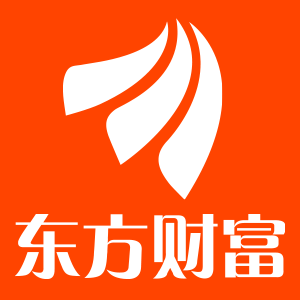The Sinovac COVID-19 vaccine, which once sold over 100 billion in annual sales, was revealed to have been discontinued. Previously, many domestically produced COVID-19 vaccines have been discontinued.
On January 10, a document titled “Suspension of COVID-19 Project Performance Salary Plan” was circulated online and was signed by Beijing Sinovac Zhongwei Biotechnology Company. It mentioned that all production of the company’s COVID-19 vaccines had been suspended and that the company currently has no COVID-19 cases. Vaccine product sales.
The above-mentioned plan was signed on January 9 and was stamped with the official seal of Beijing Sinovac Zhongwei Biotechnology Company. It mentioned that at this stage, the company’s new crown vaccine has stopped production and the company currently has no new crown vaccine products for sale. The company decided Starting from January 2024, COVID-19 project performance pay for existing employees will be stopped.
As of press time, Sinovac has not responded to this news.
Beijing Sinovac Biotech Co., Ltd. (hereinafter referred to as “Sinovac”) is a subsidiary of Sinovac Biotechnology Co., Ltd., and the new coronavirus vaccine CoronaVac is a product of Sinovac Biotech. It is produced by Beijing It is produced at two major bases in China and Dalian, and the corresponding manufacturers are Sinovac Zhongwei, Beijing Sinovac (Beijing Sinovac Biological Products Co., Ltd.) and Dalian Sinovac (Sinovac Vaccine Technology Co., Ltd.). The above three Sinovac companies are all subsidiaries of the listed company Sinovac Biotech (Sinovac Holding Biotechnology Co., Ltd.).
Kelifu is one of the first COVID-19 vaccines approved for use in China. Sinovac’s performance also surged with the approval of this new crown vaccine. In June 2020, the new coronavirus vaccine Kelifu was approved for emergency use in China. Although it was only approved in the middle of the year, it has not affected the performance of Kelifu’s contribution to Sinovac Biotech. In 2020, Sinovac’s revenue reached US$510 million. But in the previous year, Sinovac’s revenue was only US$246 million. It can be said that Kelifu has doubled Sinovac’s performance.
In February 2021, Kelifu was conditionally launched in China. The State Food and Drug Administration conditionally approved Kelifu for use in individuals aged 18 and over. At the same time, in June 2021, it obtained emergency approval for children aged 3-17 years old. use. In 2021, Sinovac’s sales reached US$19.375 billion (approximately RMB 128.04 billion), a year-on-year increase of 3691.6%, and its gross profit reached US$18.303 billion (approximately RMB 120.946 billion), a year-on-year increase of 4031.6%.
However, Sinovac Biotech’s performance growth is extremely dependent on Calif, which also means that once the new crown epidemic subsides and Calif’s sales decline, the company’s performance will return to normal. In 2022, Sinovac’s annual sales will be US$1.5 billion (approximately 10.756 billion yuan), a 92% decrease from 2021. Sinovac Biotech said the sharp drop in sales for the full year of 2022 is due to reduced sales of the new crown vaccine. In 2021 alone, the export of new crown vaccines will bring sales revenue of US$8.474 billion (approximately 60.764 billion yuan) to Sinovac Biotech, which is higher than Sinovac Biotech’s full-year sales in 2022. However, Sinovac did not disclose the company’s export sales and sales of new crown vaccines in 2022.
The 2023 interim report shows that Sinovac’s sales in the first half of the year were US$140.4 million (approximately RMB 1.007 billion), compared with US$1.2 billion (approximately RMB 8.605 billion) in the same period last year, a year-on-year decrease of 88%. Sinovac Biotech said the main reason was the decrease in sales of the new coronavirus vaccine Clive.
It can be seen that starting from 2022, Kelifu’s sales have gone downhill, and Sinovac Biotech’s brilliant performance has become “a thing of the past”.
In fact, not only Sinovac, but also a number of companies that had relied on the new crown vaccine to create performance myths have gradually returned to normal performance after the epidemic dividend subsided. In October 2023, CanSino released its third-quarter report. The company achieved revenue of 176 million yuan in the first three quarters, a year-on-year decrease of 75.17%, and the net profit loss attributable to the parent company expanded to 985 million yuan. Regarding the revenue changes in the first three quarters of 2023, CanSino explained that the main reason is that the sales revenue of new crown vaccine products cannot reproduce the scale of last year (2022).
In 2023, CanSino announced that it would allocate more resources to the research and development of non-COVID-19 vaccine product pipelines, and its COVID-19 vaccine production base, Shanghai SIPG CanSino Biopharmaceutical Co., Ltd., also entered a state of suspension. In the same year, Wantai Biotech also released an announcement. It said that the company plans to terminate the fund-raising investment project “Nasal Spray Vaccine Industrial Base Construction Project”, and the nasal spray vaccine is the nasal spray COVID-19 vaccine that Wantai Biotech had previously obtained emergency use authorization from the State Food and Drug Administration.
It is evident from the above developments that the future performance of companies that rely heavily on COVID-19 vaccines is uncertain after the pandemic dividend has subsided. With the decline in sales of these vaccines, companies will need to shift their focus to alternative products and research to sustain and grow their businesses.
